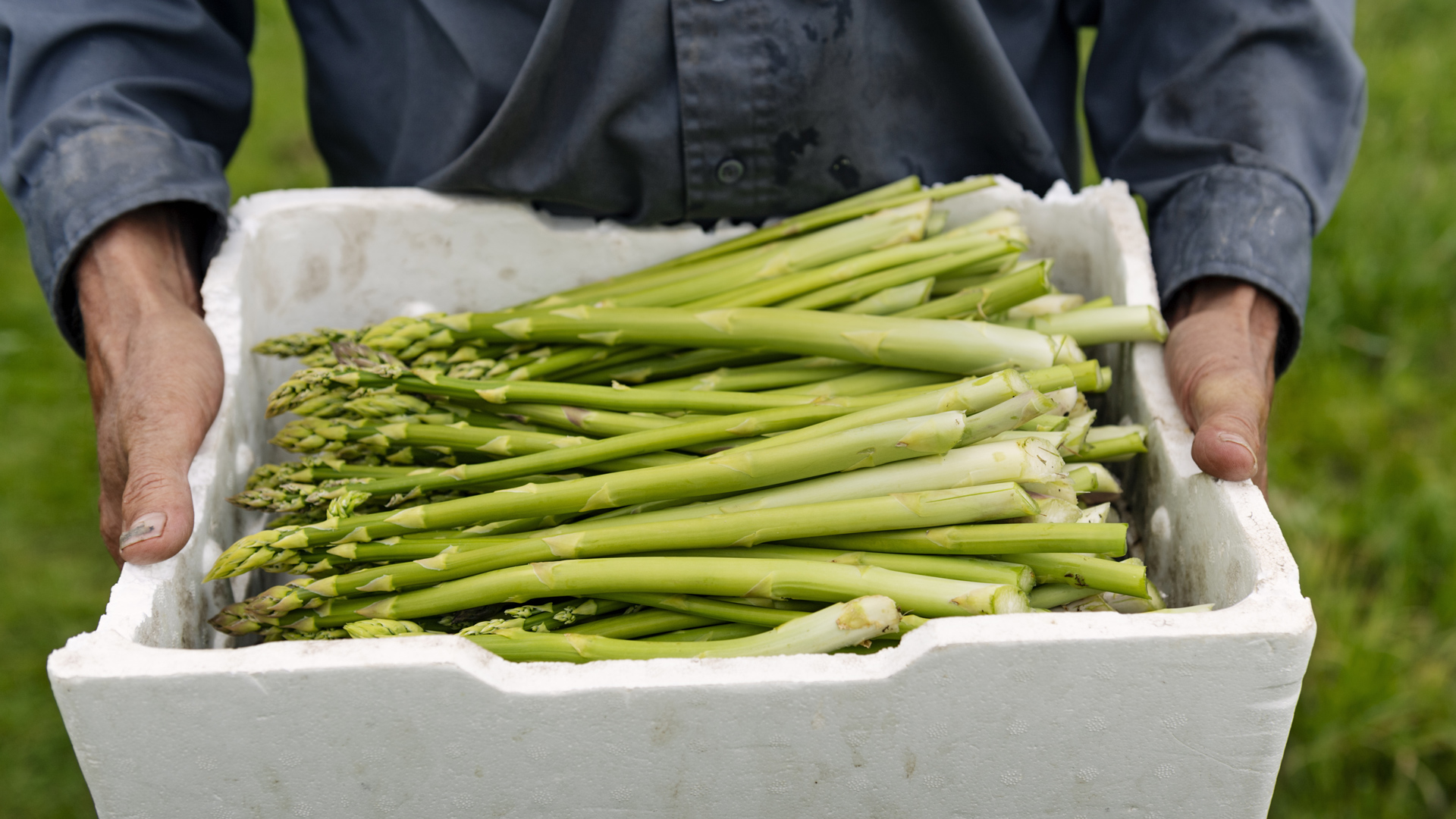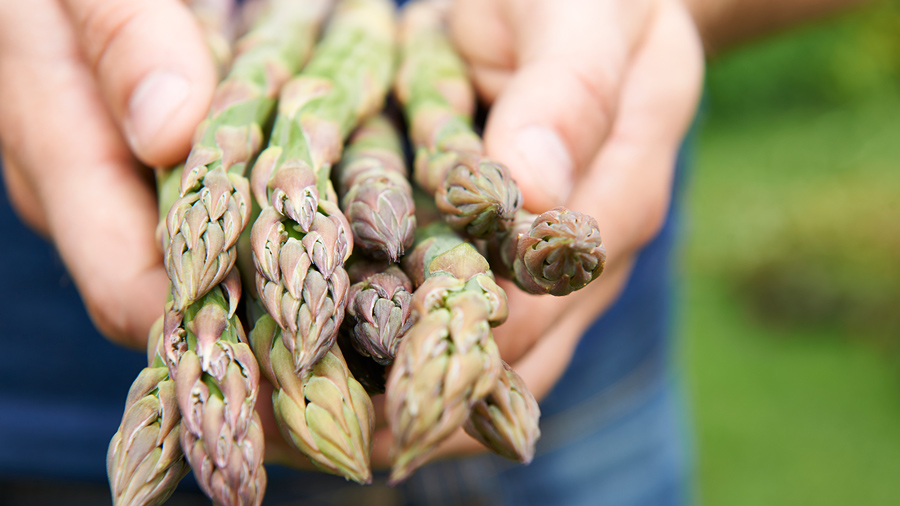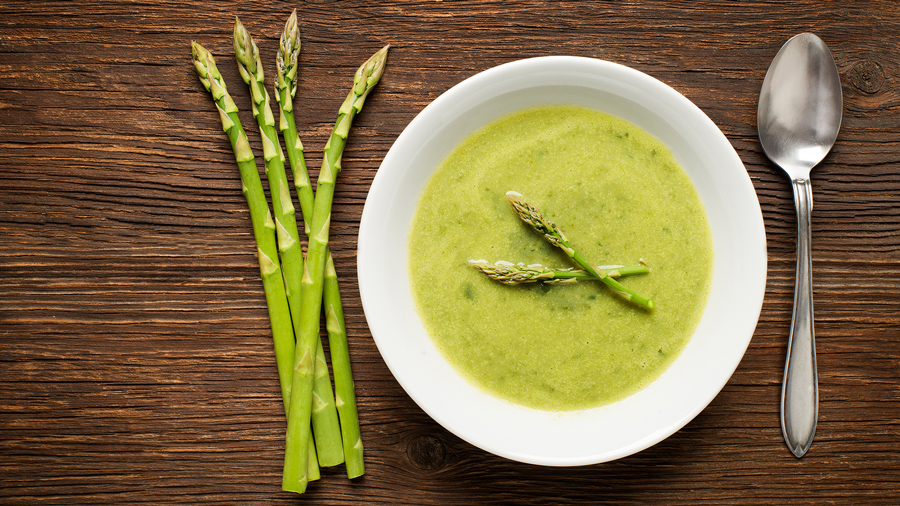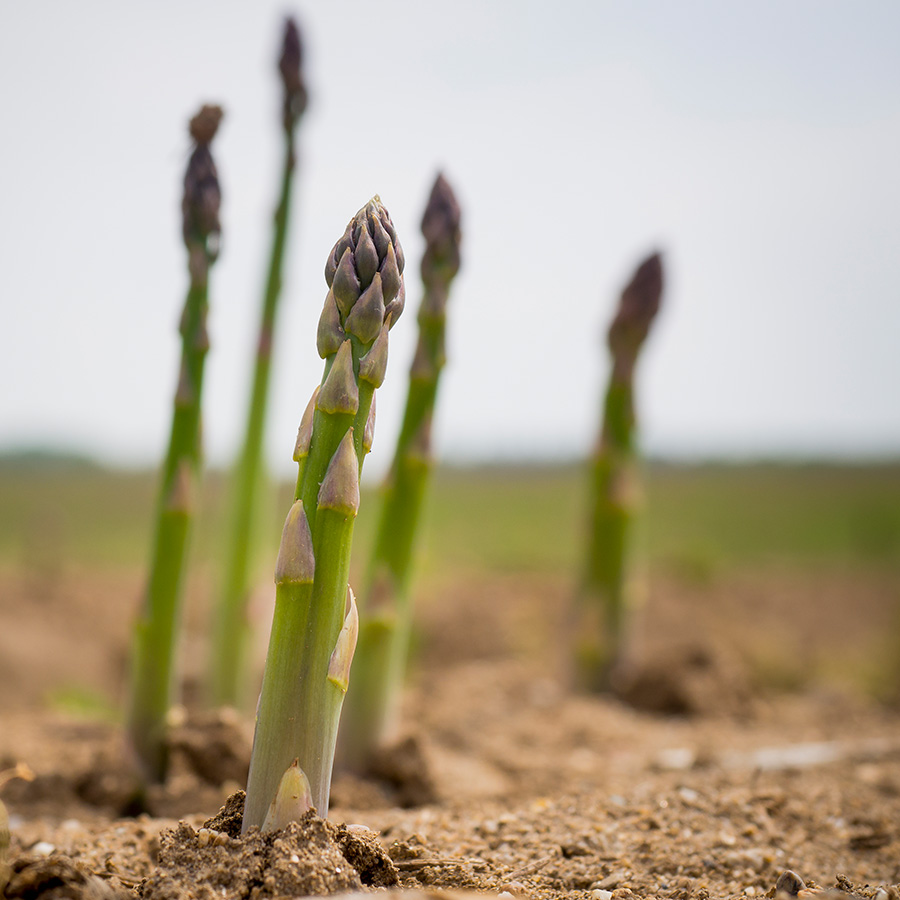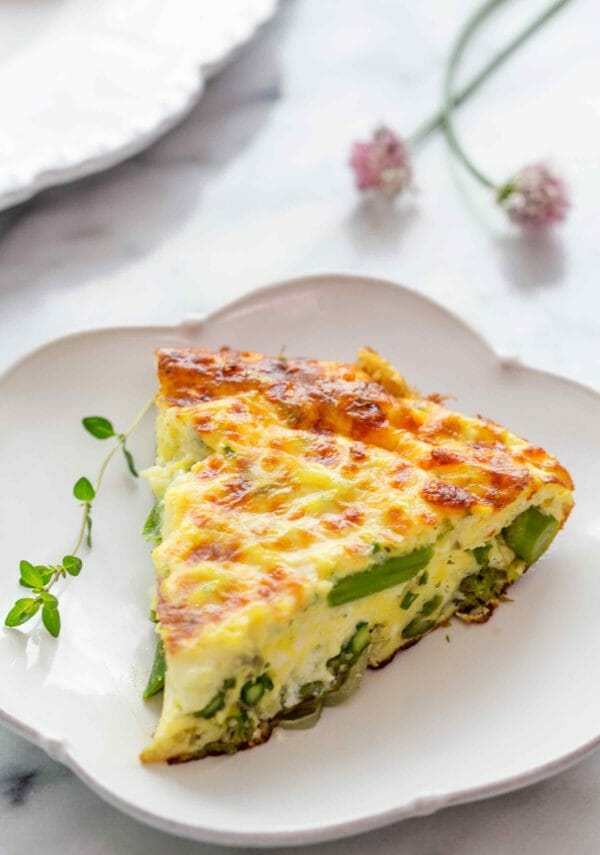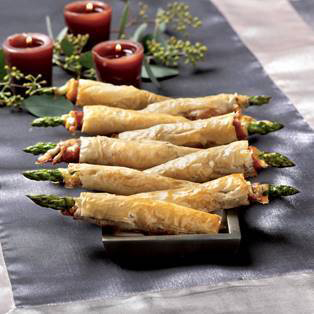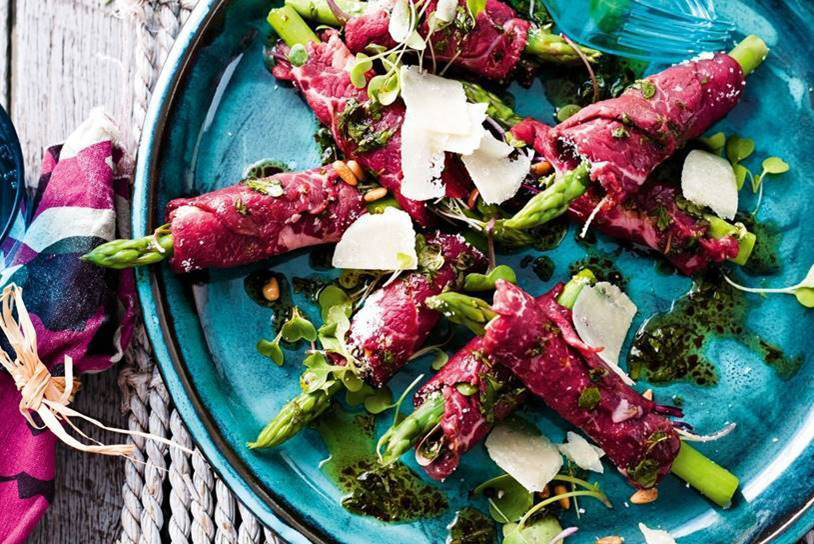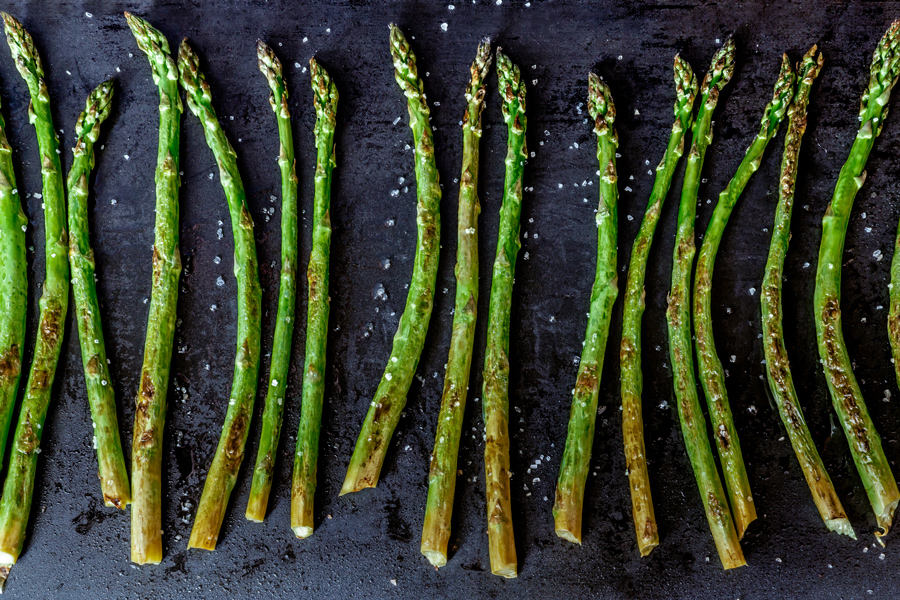Asparagus

Delicious, nutritious, and fun!
- Very low-calorie vegetable - just 20 calories per 100g.
- High in fiber, 100g of fresh spears provide 2.1g of roughage.
- Long been used in traditional medicines to treat conditions like dropsy and irritable bowel syndrome.
- Good source of anti-oxidants such as lutein, zeaxanthin, carotenes, and cryptoxanthin's.
- Fresh asparagus is rich sources of folates. 100 g of spears provide about 54 µg or 14% of RDA of folic acid.
Serve asparagus hot or cold, cooked or raw to get the most of this vegetable's nutrients.
